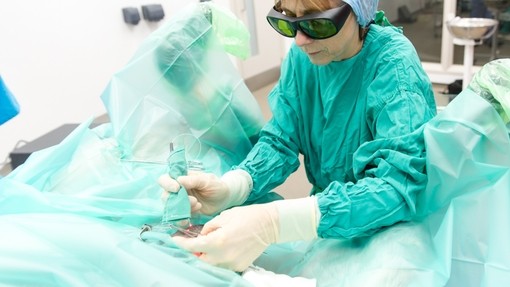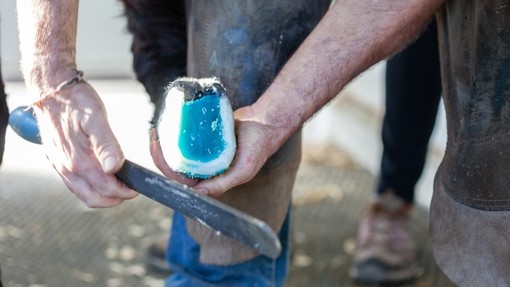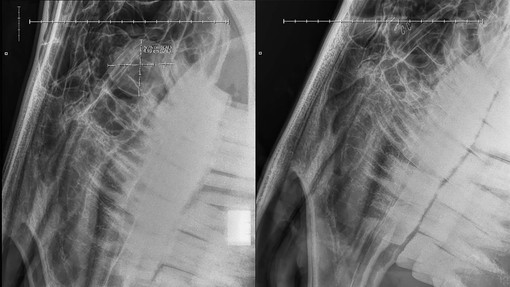Diagnosis
One of the Equine Dental Technicians (EDT) at The Donkey Sanctuary was asked to examine a donkey that had been observed with blood on his mouth. Our EDT saw that Partlan, a 3 year old gelding, had sustained fractures of two of his temporary middle and corner incisors (602 and 603). Partlan was immediately referred to the vets for x-rays and a detailed assessment.
Dental surgery
Partlan was sedated and given pain relief, and a set radiographs (straight and oblique maxillary incisor views). Thankfully, the radiographs revealed no damage to the permanent teeth developing underneath the fracture.
While still under sedation, a regional nerve block (infraorbital nerve block) was given to numb the left hand side of his maxilla. The two incisors were removed and the sockets curetted to remove all loose alveolar bone associated with the fracture. The socket was thoroughly flushed with water to remove any debris and the remaining gum sutured in place. Partlan was kept on pain relief for 4 days after surgery and his eating monitored to assess for pain.
Recovery
He recovered well, and once the sutures were removed he had no further problems. Both permanent incisors (202 and 203) developed normally and Partlan has now gone out on our rehoming scheme.
The EDTs’ and vets’ close working relationship shows just how quickly problems can be assessed and treated at our hospital, giving Partlan a fairytale ending with his guardian family.








